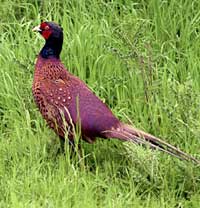RSPCA accuses government of U-turn on game bird cages

The RSPCA has accused DEFRA of making a U-turn over the use of cages for breeding game birds and is calling on producers to suspend the practice, pending further scientific research.
The call follows a recent meeting of the DEFRA Gamebird Working Group in which a form of words for a new code of practice was drawn up, which it is believed will sanction the use of cages for breeding pheasants and partridges.
An earlier code, tabled by the previous government in March, had sought to introduce minimum space allowances which, according to the Game Farmers’ Association, would have jeopardised about 6% of pheasant and 43% of partridge egg production.
But this code of practice had been withdrawn by new junior DEFRA minister Jim Paice on taking office in late May. The replacement code, which the GFA says meets most of its concerns, is due to be tabled in the next two weeks.
Cages – or “raised laying units” as the GFA prefers to call them – are still a minority method of production for pheasants. They typically provide an area of about 25sq ft for one cock and eight hens, which are kept for about three months prior to release back into the wild.
The laying units are enriched with baffles, dusting material and scratching areas, with the eggs collected daily and transferred to incubators.
But the RSPCA does not believe the system meets the basic physical and behavioural needs of game birds and has called for further research. “In the meantime, the aim is to persuade the industry to act in accordance with the scientific principles of welfare and avoid using cages as a precaution,” said a statement.
“Although it is extremely good news that the barren cage system for breeding game birds is not going to be endorsed by DEFRA, we’d like the government to make a stand on so-called enriched cages too, whilst committing to some much-needed research to address the serious welfare concerns,” said RSPCA senior scientific officer Alice Clark.
“We appreciate the lack of evidence on this issue makes it hard to provide detailed recommendations, so new scientific research would allow a timely revision of the code based on the findings to ensure all farmed game birds are able to carry out their natural behaviours.”
